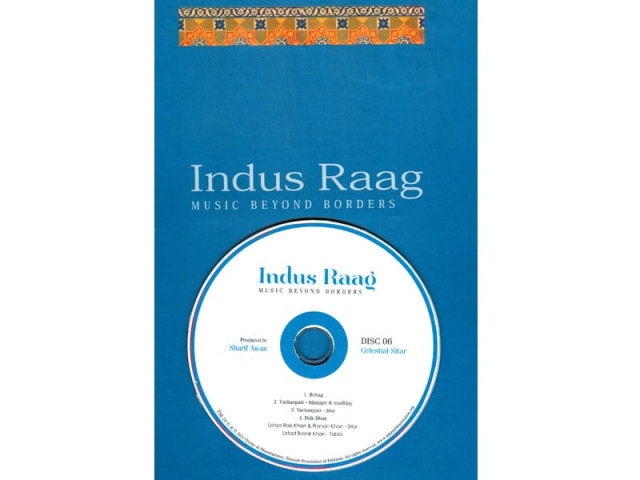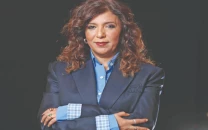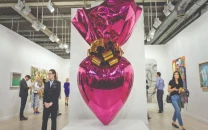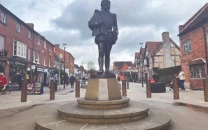Indus Raag: 13 hours of soul-stirring music
Sharif Awan has undertaken the task of building an archive of classical music.

Indus Raag: 13 hours of soul-stirring music
When public institutions created to promote the arts and the professions become dysfunctional, creative people, who have something to give, open channels for themselves.
The decline of the state as a promoter of all things good has over the years affected the weaker claimants more than other more muscular segments. And classical music was certainly a poor contestant in the market. Now with a 100 odd private TV channels in business with scant interest in low-rating products, classical music is facing a serious crisis.
Sharif Awan — who is neither a singer nor an instrument player himself — has taken upon himself the task of building an archive of our classical music and in an attempt to save a tradition that is one of our greatest cultural assets. What drove Awan to this mission was the fear that the tradition faced the threat of oblivion and extinction from general apathy and institutional neglect, if steps were not taken now to preserve it while its exponents were still around. After many years of dedicated hard work and much personal expense on bringing together the genuine exponents of the tradition from the various gharanas, from both India and Pakistan, Awan has been able to produce his first collection of classical music, the Indus Raag. The anthology is a collection of performances, by 26 artists, of a whole range of genres of the tradition — ragas, raginis, kheyal, thumri, dadra and kafi. Of special interest in this album is the demonstration of jugalbandi (performance in classical music that features a duet of two solo musicians) by noted musicians of the subcontinent.
The 12 discs of the recordings present over 13 hours of vocal and instrumental rendition of some of the major and popular raags as well as some less known classic compositions. Among musicians featuring in this collection are Ustad Rais Khan (sitar), Pandit Vishwa Mohan Bhatt (veena), Ustad Fateh Ali Khan, Ustad Naseeruddin Saami, Ustad Mubarak Ali Khan, Asad Qizilbash (sarod), Ustad Ghulam Hassan Shaggan, Mumtaz Ali Sabzal (banjo), Ustad Bashir Khan (tabla), Ustad Ashraf Sharif Khan (sitar), Ustad Salamat Hussain (flute), Kamal Sabri (sarangi) and Abdullah Khan (shehnai) to name a few.
Indus Raag has been produced under the auspices of Tehzeeb Foundation, which Awan has established for the advancement and promotion of music, literature and art. But its main interest lies in preservation and archiving of classical music of the subcontinent.
Awan rejects the notion that modern and pop forms of trendy music have rendered the classical tradition old-fashioned. He thinks that this music which has roots in the cultural ethos and aesthetical consciousness of the subcontinent is not only sustainable on its present oceanic content but has limitless possibilities of future development. In particular today, when the recording technology has made great advances and is capable now of reflecting the subtle nuances of sound, of pitch, volume and timber that was not available in the past, it must be put to use to record and preserve as much of the available music as possible. We now owe it to the coming generations to pass on to them what we possess and which is of value.
Published in The Express Tribune, May 25th, 2012.



















COMMENTS
Comments are moderated and generally will be posted if they are on-topic and not abusive.
For more information, please see our Comments FAQ